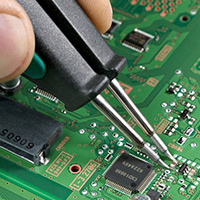

Buying Low-E Glass The Smart Investment for Your Home
In the modern world, energy efficiency has taken center stage as a priority for homeowners and builders alike. Among various advancements in building materials, Low-E (low emissivity) glass stands out as a technology that not only enhances the aesthetic appeal of homes but also significantly contributes to saving energy. This article explores the benefits of Low-E glass, why it is a smart investment, and considerations for buying it.
What is Low-E Glass?
Low-E glass is specially coated glass that reflects heat while allowing natural light to enter. The E in Low-E stands for emissivity, which refers to a material's ability to radiate energy. This type of glass has a microscopically thin coating that helps control the transfer of heat, making it ideal for both residential and commercial applications. There are two primary types of Low-E glass passive and solar control, each designed for different climate needs.
Benefits of Low-E Glass
1. Energy Efficiency The most significant advantage of Low-E glass is its ability to improve energy efficiency. By reflecting infrared energy (heat), it helps keep indoor spaces cooler in summer and warmer in winter. This can lead to substantial reductions in heating and cooling costs.
2. UV Protection Low-E glass can block up to 99% of harmful UV rays. This protection helps reduce fading of furniture, flooring, and artwork, making it a wise investment for anyone looking to preserve the aesthetics of their indoor spaces.
3. Enhanced Comfort With better temperature regulation, homes fitted with Low-E glass tend to have more consistent indoor temperatures. Homeowners can enjoy greater comfort without frequently adjusting the thermostat.
4. Noise Reduction Many Low-E glass options come with double or triple glazing, which also acts as a sound barrier. This is particularly advantageous for homes located in noisy areas, allowing residents to enjoy a more peaceful living environment.
5. Increased Property Value Investing in energy-efficient technologies like Low-E glass can increase a property's resale value. As more buyers prioritize energy efficiency and comfort, homes equipped with Low-E glass are likely to stand out in the market.

Buying Low-E Glass What to Consider
When considering the purchase of Low-E glass, there are several key factors to keep in mind
1. Climate Considerations Different types of Low-E coatings are suitable for different climates. For instance, passive Low-E glass is ideal for colder climates as it maximizes solar gain, while solar control Low-E glass is better for warmer climates, minimizing heat entry.
2. Reputable Suppliers It’s essential to purchase Low-E glass from reputable manufacturers and suppliers. Ensure that the product meets local building codes and energy performance standards. Brands with good reviews and solid warranties are worth considering.
3. Installation The effectiveness of Low-E glass is highly dependent on proper installation. Hiring experienced professionals will ensure that the glass is installed correctly, maximizing its energy-efficient properties. Poor installation can lead to air leaks and negate the benefits of Low-E glass.
4. Cost vs. Savings While Low-E glass can initially be more expensive than traditional glass options, the long-term savings on energy bills can justify the investment. Consider your local energy costs and potential savings over time when making your decision.
5. Aesthetic Considerations Low-E glass is available in various styles and finishes, allowing homeowners to select options that complement their property’s design while benefiting from its efficiency.
Conclusion
Investing in Low-E glass is a forward-thinking choice for homeowners focused on energy efficiency, cost savings, and overall comfort. Its numerous benefits, from UV protection to improved energy bills, make it a wise addition to any home renovation or new construction project. As you consider your options, take the time to research different types of Low-E glass, consult with professionals, and think about your unique needs as a homeowner. In the long run, buying Low-E glass can truly pay off, transforming your home into a more sustainable and comfortable living space.